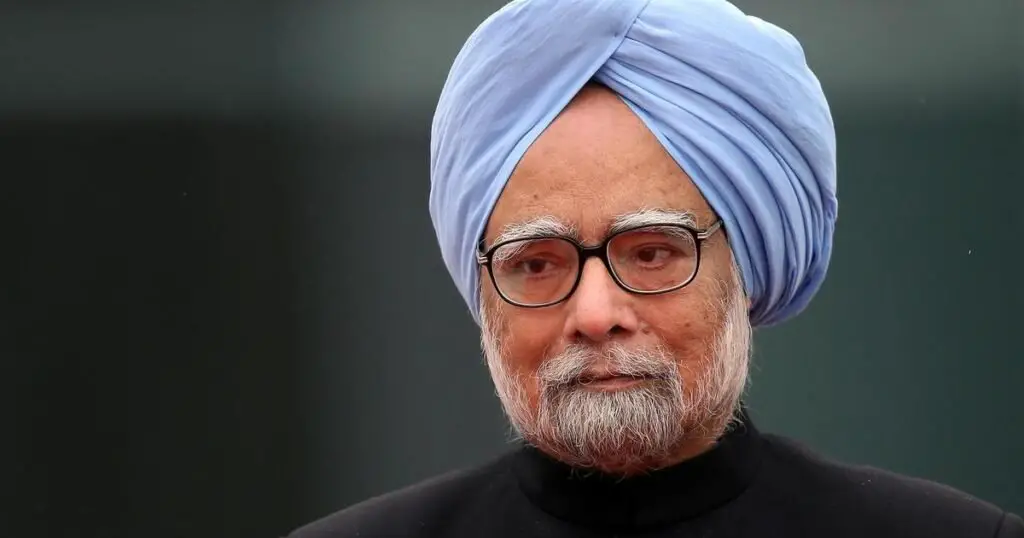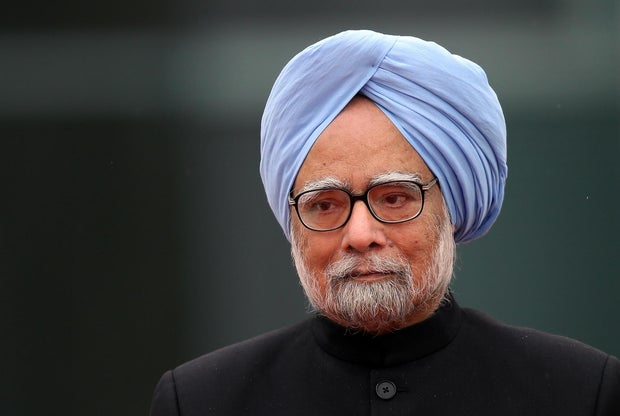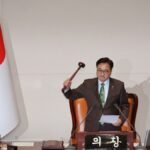India’s former Prime Minister Manmohan Singh is widely regarded as the architect of India’s economic reform program and a milestone Nuclear agreement with the United States, died. He was 92.
Singh was admitted to the All India Institute of Medical Sciences in New Delhi late Thursday after his health deteriorated due to a “sudden loss of consciousness at home,” a statement from the hospital said.
“Immediate resuscitation measures were initiated at home. He was taken to the emergency medical room at 8:06 p.m.,” the hospital said, but “despite best efforts, he could not be resuscitated and was pronounced dead at 9:51 p.m.”
Singh is being treated for “age-related illnesses,” the statement said.
Sean Gallup/Getty Images
Singh, a mild-mannered technocrat, became one of them India’s longest serving Prime Minister For ten years he was leader of the Congress Party in the Upper House of Parliament and earned a reputation as a man of great personal integrity. He was chosen The role was taken over in 2004 by Sonia Gandhi, the widow of assassinated Prime Minister Rajiv Gandhi.
However, his excellent image was marred by corruption allegations against his ministers.
Singh was re-elected in 2009, but his second term as prime minister was marred by financial scandals and corruption allegations surrounding the organization of the 2010 Commonwealth Games. This led to the Congress party’s crushing defeat in the 2014 national elections against the Hindu nationalist Bharatiya Janata Party led by Narendra Modi.
After Singh left office as prime minister, he kept a low profile.
Prime Minister Modiwho succeeded Singh in 2014, called him one of India’s “most outstanding leaders” who came from humble beginnings and “left a strong mark on our economic policies over the years.”
“As our Prime Minister, he made extensive efforts to improve people’s lives,” Modi said in a post on social platform X. He called Singh’s interventions in Parliament as a lawmaker “insightful” and said “his wisdom and humility were.” always visible.” “
Rahul Gandhi, who belongs to the same party as Singh and is leader of the opposition in the lower house of India’s parliament, said Singh’s “deep understanding of economics has inspired the nation” and that he has “led India with immense wisdom and integrity.”
“I have lost a mentor and guide. Millions of us who admired him will remember him with the greatest pride,” Gandhi wrote on X.
The United States expressed its condolences Secretary of State Antony Blinken He said Singh was “one of the greatest advocates of the US-India strategic partnership.”
“We mourn the loss of Dr. Singh’s death and will always remind us of his commitment to bringing the United States and India closer together,” Blinken said.
Singh was born on September 26, 1932 in a village in the Punjab province of undivided India. His brilliant academic career took him to the University of Cambridge in Great Britain, where he earned a degree in economics in 1957. He then received a doctorate in economics from Nuffield College, Oxford University in 1962.
Singh taught at Panjab University and the prestigious Delhi School of Economics before joining the Indian government in 1971 as an economic advisor in the Ministry of Commerce. In 1982 he became chief economic adviser to the Ministry of Finance. He was also Vice Chairman of the Planning Commission and Governor of the Reserve Bank of India.
As finance minister, Singh initiated reforms in 1991 opened the economy and, faced with a huge balance of payments deficit, moved India from a socialist economy to a capitalist model, thereby avoiding a possible economic crisis.
His awards include the Padma Vibhushan Award in 1987, India’s second highest civilian award; the Jawaharlal Nehru Birth Centenary Award from the Indian Science Congress in 1995; and the Asia Money Award for Finance Minister of the Year in 1993 and 1994.
Singh was a member of the upper house of the Indian Parliament and leader of the opposition from 1998 to 2004 before being appointed prime minister. He was the first Sikh to hold the country’s top post and publicly apologized in Parliament for the 1984 Sikh massacre, in which about 3,000 Sikhs were killed after then-Prime Minister Indira Gandhi was assassinated by Sikh bodyguards.
Under Singh, India passed a Right to Information Act in 2005 to promote accountability and transparency among government officials and bureaucrats. He was also instrumental in introducing a welfare system that guaranteed rural Indian citizens at least 100 days of paid work.
The coalition government he led for a decade brought together politicians and parties with different ideologies that competed in the country’s various states.
Singh ended India’s nuclear isolation by signing an agreement with the US that gave India access to nuclear weapons. Along with economic reforms, this is considered one of his greatest achievements American nuclear technology.
But the deal hit his government negatively as communist allies withdrew their support and criticism of the deal grew in India in 2008, when it was finalized.
Singh took a pragmatic approach to foreign policy and sought a peace process with nuclear rivals and neighbors Pakistan. But his efforts suffered a major setback when Pakistani militants carried out a massive gun and bomb attack in Mumbai in November 2008.
He also tried to end the border dispute with China by brokering a deal to reopen the Nathu La Pass into Tibet, which had been closed for more than 40 years.
His 1965 book “India’s Export Trends and Prospects for Self-Sustained Growth” dealt with India’s inward-looking trade policy.
Singh is survived by his wife Gursharan Kaur and three daughters.
____
Associated Press writer Sheikh Saaliq in New Delhi contributed to this report.






